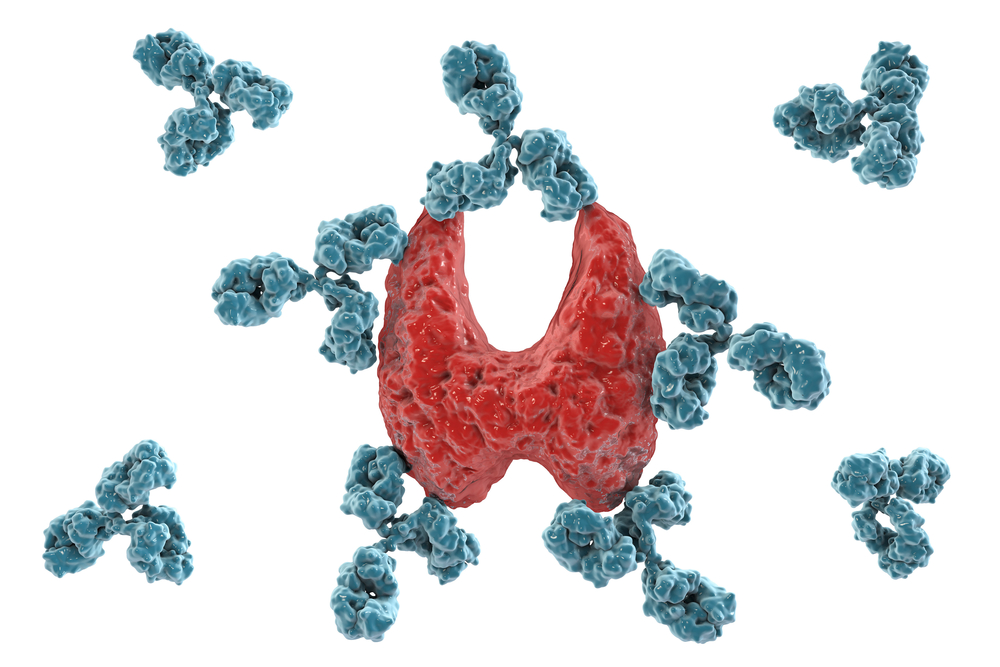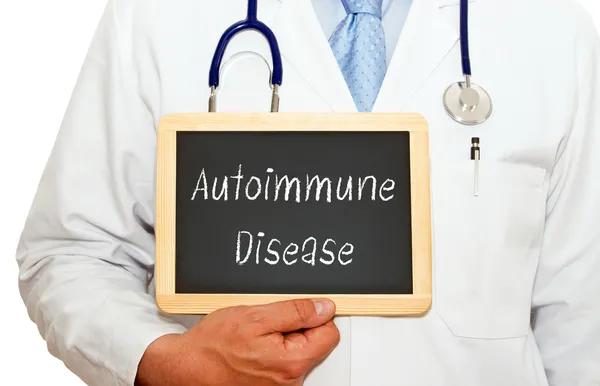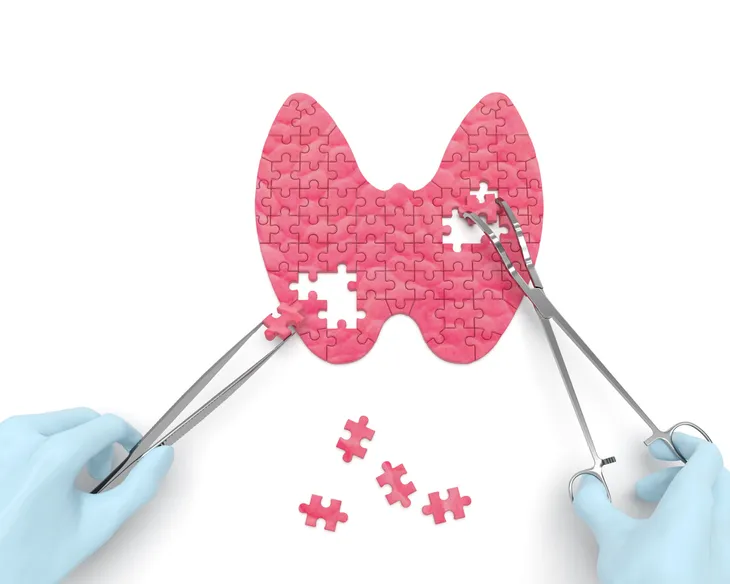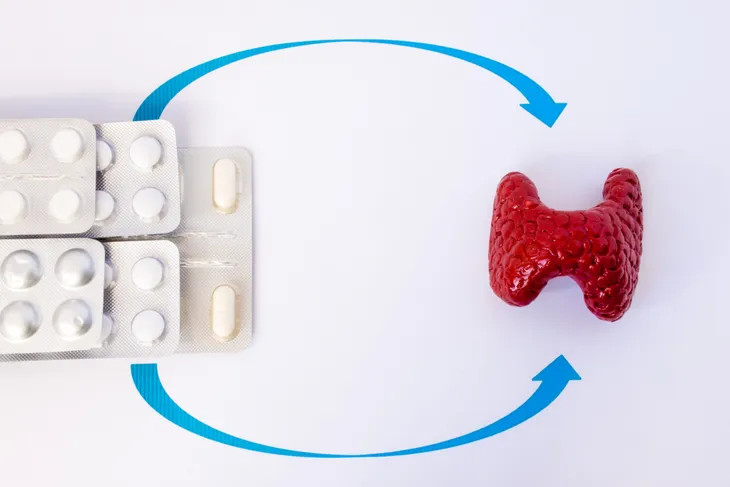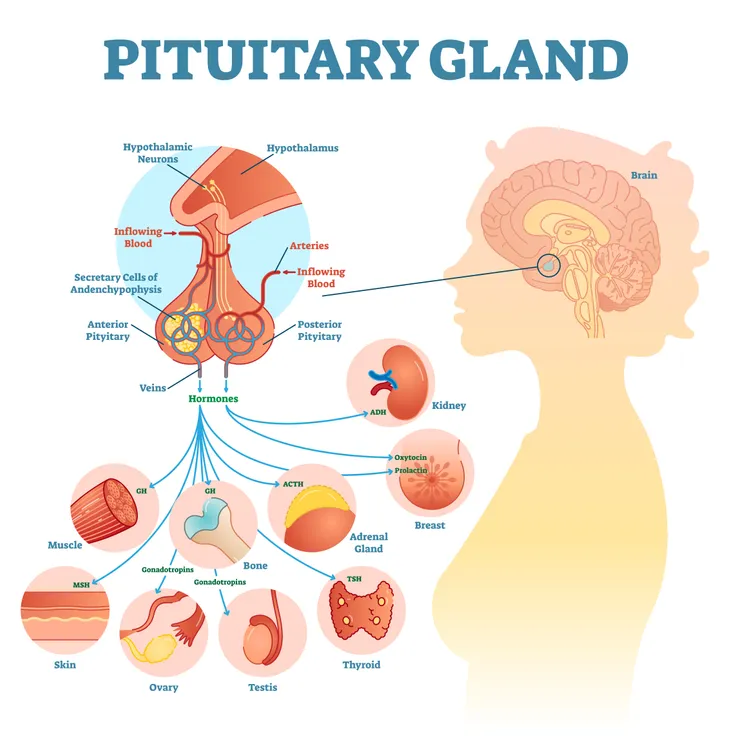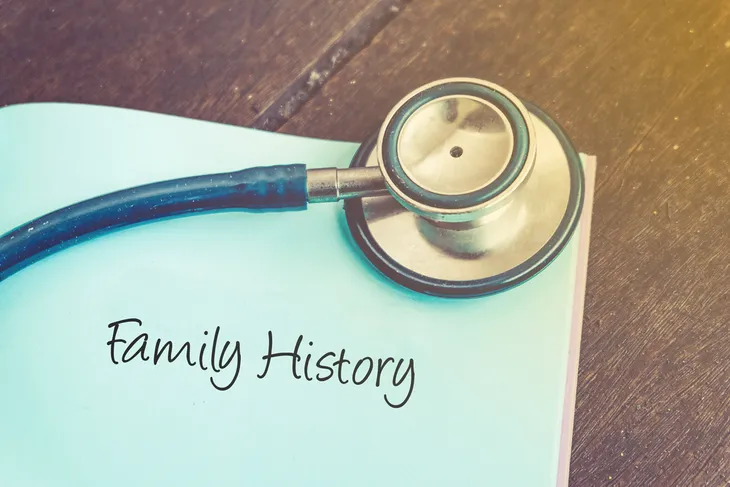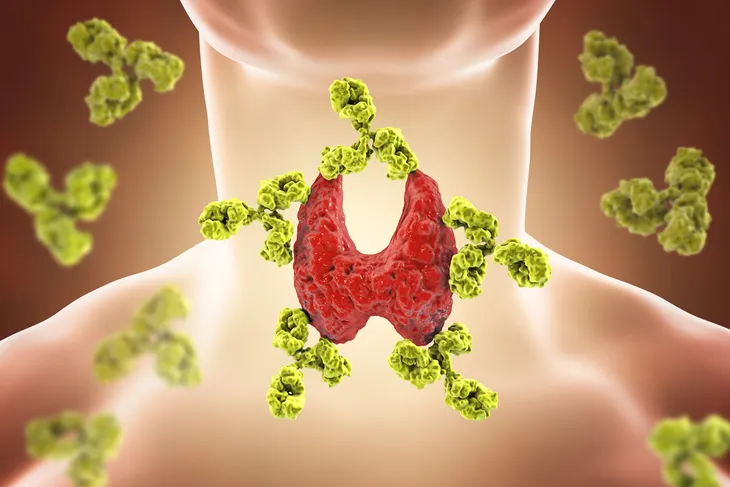Hypothyroidism (or an underactive thyroid) occurs when the thyroid gland fails to produce a sufficient amount of thyroid hormone (also referred to as thyroxine or T4). The problem is most prevalent in women over the age of 60 and comes with a variety of irritating or painful symptoms, from obesity to join pain, infertility, and even heart disease. In this way, hypothyroidism can affect people in vastly different ways, with a common theme being its ability to disrupt a person’s life in a very visible manner. This is because the hormones produced by the thyroid is responsible for doing so much, like determining how your body processes the nutrients consumed through food.
The first step towards managing hypothyroidism, as with any condition, is to understand its causes, of which there are many. That said, some factors will be more prevalent than others in causing hypothyroidism. Let’s take a look at these issues here.
1. Autoimmune Disease
Chances are you’ve never heard of an inflammatory disease called Hashimoto’s thyroiditis, even though this is the most common cause of hypothyroidism. It’s an autoimmune disease, which means it involves the immune system creating antibodies that actually attack the tissues they’re supposed to protect in your body. In cases where Hashimoto’s impacts the thyroid gland, the problem often results in hypothyroidism.
Research continues on the causes of Hashimoto’s and why this condition results in the targeting of the body’s tissue. Some experts hypothesize that the problem is a virus or possibly a bacterium that causes a response, while others point to the possibility of genetic issues. In any case, individuals diagnosed with Hashimoto’s thyroiditis should talk to their doctor about carefully monitoring them for hypothyroidism.
2. Hyperthyroidism Treatment
While hypothyroidism occurs when the thyroid produces an insufficient amount of hormones, hyperthyroidism emerges when the thyroid gland produces too much hormone. Although the problem is much different, the symptoms of both can be similar and equally problematic for the individuals affected.
For help with hyperthyroidism, many people turn to special treatments that can have a radical effect on the body. For example, hyperthyroidism is sometimes treated with radioactive iodine, which has been shown to help regulate thyroid function. However, in a small percentage of cases, the result has actually been the emergence of hypothyroidism. For this reason, individuals undergoing treatment for hyperthyroidism should talk to their doctor about the chances that hypothyroidism will emerge as a new concern.
3. Surgery on the Thyroid
Surgery can produce amazing results for a variety of minor and major health problems. Many people have stories of how a surgical procedure transformed their lives from being a constant battle with pain and discomfort to something vastly more manageable.
But surgery is widely considered, at least by most medical professionals who are not also surgeons, to be a last resort. This is because, while surgery can lead to overwhelmingly positive results, it can also have some troubling side effects. For individuals with thyroid problems, surgery on the thyroid gland can result in its malfunctioning, meaning it produces too much or too few of the thyroid hormone. In either case, the solution is usually taking medications that help regulate hormone production.
4. Radiation Therapy
Today, radiation therapy remains one of the most popular treatments for a variety of cancers. This treatment can have startlingly positive results, although it often comes with a variety of frightening side effects, from persistent nausea to headaches and dizziness.
But it can also cause problems with the thyroid gland, especially when radiation therapy is used to target the head and neck (the latter being where the thyroid gland is located). In some cases, radiation therapy has led to hypothyroidism. If you’re undergoing chemotherapy for a cancer in the head or neck areas, talk to your doctor about the possibility of hypothyroidism.
5. Lithium Treatment
Lithium has been used for decades in the treatment of major psychiatric disorders, such as severe depression and bipolar disorder. For many people, lithium has had positive results, in some cases allowing individuals to lead more normal lives.
Unfortunately, lithium can have some troublesome side effects. One of those potential side effects is hypothyroidism, with the lithium resulting in the thyroid gland struggling to supply the body with the hormone it needs. This is why anyone being treated with lithium should talk to their doctor about the symptoms of hypothyroidism.
6. Congenital Health Problems
Not all problems with the thyroid gland emerge later in life as a result of surgery, radiation therapy, or medication side effect. In fact, there’s a substantial population of individuals who are, every year, born with a defective thyroid gland that struggles to produce a sufficient amount of hormone. It’s also possible for a child to be born without a thyroid gland.
This problem is widely referred to as congenital hypothyroidism, and it is often passed from a parent to their children. For the most part, children with hypothyroidism will appear and generally function like those without the disorder. In time, however, they will develop many of the symptoms visible in adults with hypothyroidism, from struggles with their weight to joint pain and infertility. This is why a growing number of states and provinces carry out a thyroid test when a baby is born.
7. Pituitary Disorder
Should the pituitary gland fail to produce sufficient hormones to stimulate the thyroid, it’s possible that hypothyroidism will be the result. Often, this occurs because there’s a tumor on the pituitary gland, preventing it from functioning properly and supporting the thyroid gland’s optimal function.
Individuals with problems with their pituitary gland should discuss the possibility of hypothyroidism with their doctor and keep a close eye on activity affecting the pituitary gland.
8. Pregnancy
Becoming pregnant presents a woman with a variety of health challenges, from upset stomach and vomiting during the early stages, to the threat of diabetes and general discomfort during the last few months of the gestational period.
Unfortunately, you can add the potential for hypothyroidism to that list of challenges women face during their 9- (or so) months of pregnancy. This is because pregnant women may produce antibodies that actually attack the thyroid gland, possibly resulting in it underperforming. There is also the possibility that this will occur following pregnancy, resulting in hypothyroidism. This is a much bigger problem for women who are still carrying a child, as hypothyroidism can cause high blood pressure, premature delivery, and other issues that threaten the health of the child.
9. Iodine Deficiency
Iodine is usually found in seafood and seaweed or plants grown in iodine-rich soil. But it’s also an important nutrient that should be present in the average North America’s diet. Failing to get a sufficient amount of iodine can be a problem, with hypothyroidism being one of a few different consequences of not getting enough. On the flip side, getting too much iodine in your diet can also lead to hypothyroidism.
Iodine deficiency is often a genetic problem, meaning it’s passed down from parents and grandparents to their children and grandchildren. If you’re aware of a family history of iodine deficiency, it’s worth having a chat with your doctor about the threat of hypothyroidism.
10. Advanced Age
Individuals who have reached age 60 are at a higher risk of developing hypothyroidism. The problem is actually more pronounced among women of this age group, possibly because it can be related to pregnancy.
If you’re a woman age 60 or older and have detected any of the symptoms of hypothyroidism, you should talk to your doctor about the issue. Because hypothyroidism can be hard to detect, it’s important to avoid ruling out the problem with a thorough examination.
11. Family History
As with many illnesses, your chances of developing hypothyroidism increase significantly if you have a family history of the problem or any issue related to the functioning of the thyroid gland.
For this reason, it’s important to have a frank conversation with your family members and your doctor about your chances of developing hypothyroidism or another form of thyroid gland disorder, such as hyperthyroidism. It helps to be aware of common symptoms of hypothyroidism, such as maintaining a healthy weight, heart-related issues, and infertility.
12. History of Autoimmune Disease
If you’ve ever experienced a problem with an autoimmune disease, such as rheumatoid arthritis or lupus, then you may be more likely to experience a thyroid gland-related health issue, such as hypothyroidism or hyperthyroidism.
Individuals who have experienced an autoimmune disease, which results in the body producing antibodies that actually attack friendly, healthy tissue, should be aware of their heightened likelihood of developing hypothyroidism or another thyroid-related issue. They should discuss the matter with their doctor, particularly if they experience any of the common symptoms associated with hypothyroidism.
